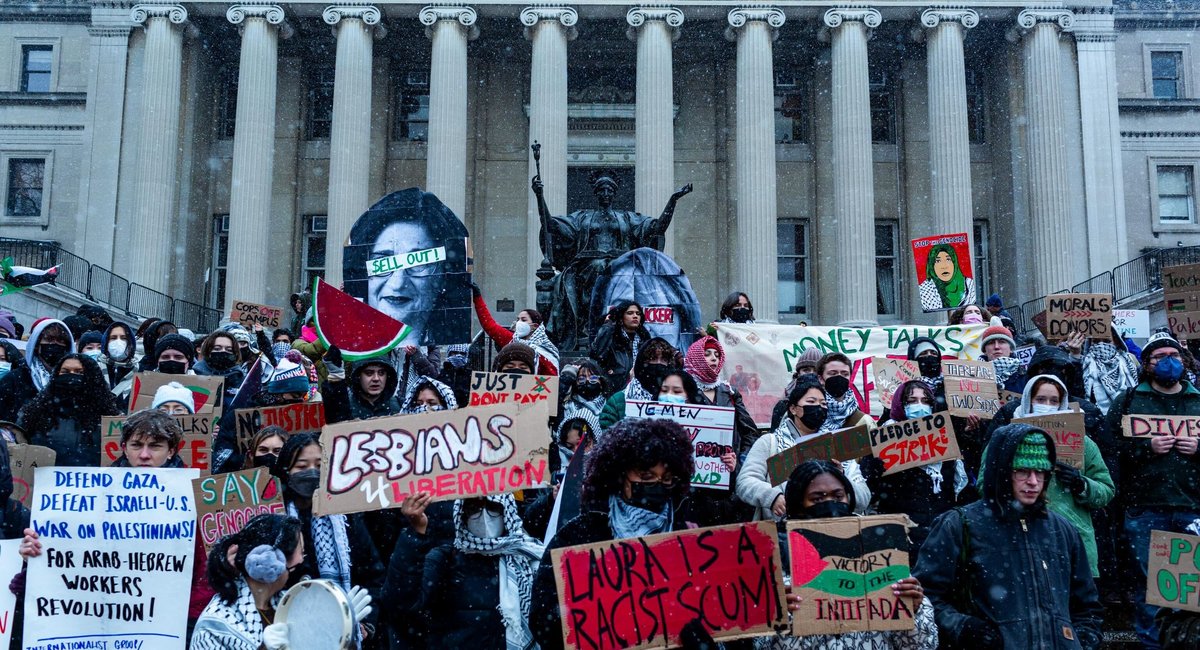After five months of controversy and protests, Columbia University’s president appears poised to restrict demonstrations on campus at New York City’s only Ivy.
In recent weeks, an advisory panel made up mostly of academics and administrators rejected pro-Palestinian students’ demand that the university divest from Israel, and recommended the president impose new limits on campus demonstrations. The restrictions include banning the use of speakers and megaphones, “real-time” intervention of protests by university authorities and “a more proactive effort” to identify masked protesters.
Columbia President Minouche Shafik welcomed the recommendations in a statement and said they’d be reviewed at the end of the semester.
“It is essential to ensure that debates and disagreements across Columbia are rooted in academic rigor and civil discourse, and that Jewish students, faculty and staff, and all members of our community feel safe, supported and included,” she said. “We are committed to ensuring that our rules both protect free speech and foster inclusivity at Columbia.”
The developments indicate a realignment toward “university neutrality” occurring throughout the Ivy League, experts said.
The leaders of Harvard University and the University of Pennsylvania resigned amid widespread criticism for their handling of antisemitism on campus in the wake of the Oct. 7 attack by Hamas militants in Israel. Shafik, who declined requests for an interview, has thus far avoided the same level of scrutiny. The advisory panels’ reports offer a hint at how she plans to manage campus life in the coming months.
“Until Oct. 7, it seemed like wisdom that [the institution] should not move towards neutrality, but should express solidarity with whichever group was more commonly perceived to be oppressed or marginalized,” said Houman Harouni, an expert in higher education governance at the Harvard Graduate School of Education. “Now, the complexity of the issue…
Read the full article here

Leave a Reply